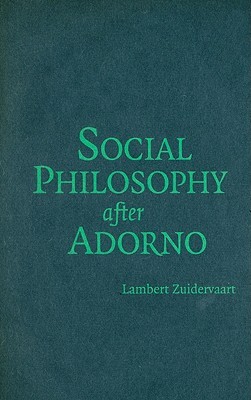
- We will send in 10–14 business days.
- Author: Lambert Zuidervaart
- Publisher: Cambridge University Press
- ISBN-10: 0521870275
- ISBN-13: 9780521870276
- Format: 16.1 x 23 x 1.8 cm, hardcover
- Language: English
- SAVE -10% with code: EXTRA
Reviews
Description
This book examines what is living and what is dead in the social philosophy of Theodor W. Adorno, the most important philosopher and social critic in Germany after World War II. When he died in 1969, Adorno's successors abandoned his critical-utopian passions. Habermas, in particular, rejected or ignored Adorno's central insights on the negative effects of capitalism and new technologies upon nature and human life. In this book, Lambert Zuidervaart reclaims Adorno's insights from Habermasian neglect, while taking up legitimate Habermasian criticisms. He also addresses the prospects for radical and democratic transformations of an increasingly globalized world. The book proposes a provocative social philosophy "after Adorno."
EXTRA 10 % discount with code: EXTRA
The promotion ends in 17d.13:10:06
The discount code is valid when purchasing from 10 €. Discounts do not stack.
- Author: Lambert Zuidervaart
- Publisher: Cambridge University Press
- ISBN-10: 0521870275
- ISBN-13: 9780521870276
- Format: 16.1 x 23 x 1.8 cm, hardcover
- Language: English English
This book examines what is living and what is dead in the social philosophy of Theodor W. Adorno, the most important philosopher and social critic in Germany after World War II. When he died in 1969, Adorno's successors abandoned his critical-utopian passions. Habermas, in particular, rejected or ignored Adorno's central insights on the negative effects of capitalism and new technologies upon nature and human life. In this book, Lambert Zuidervaart reclaims Adorno's insights from Habermasian neglect, while taking up legitimate Habermasian criticisms. He also addresses the prospects for radical and democratic transformations of an increasingly globalized world. The book proposes a provocative social philosophy "after Adorno."


Reviews